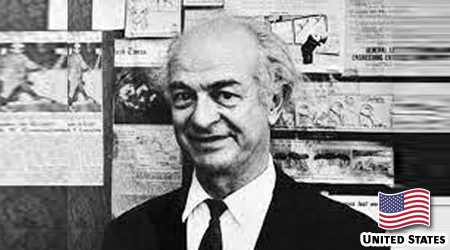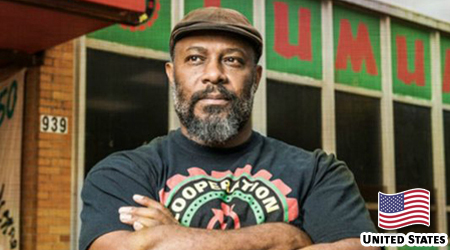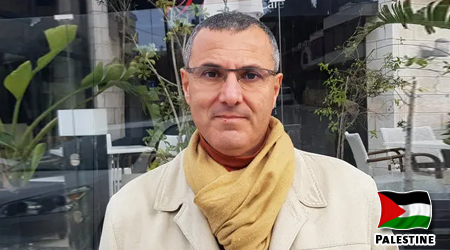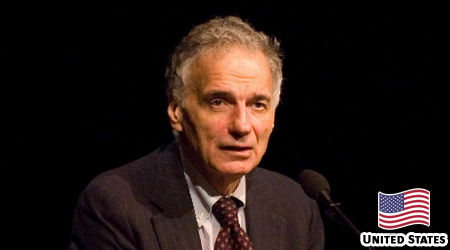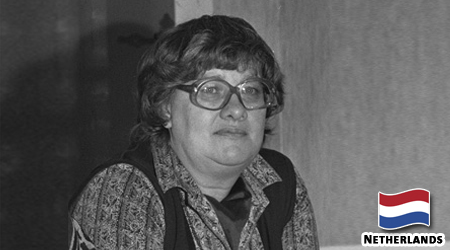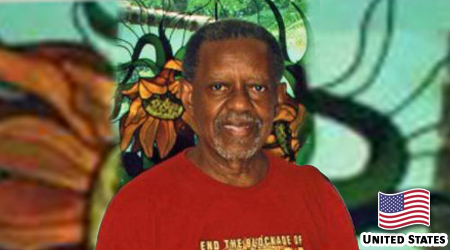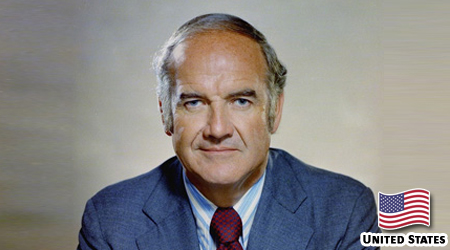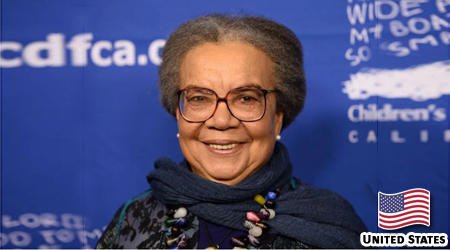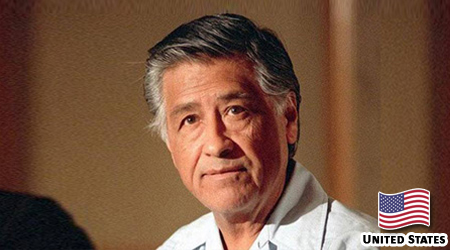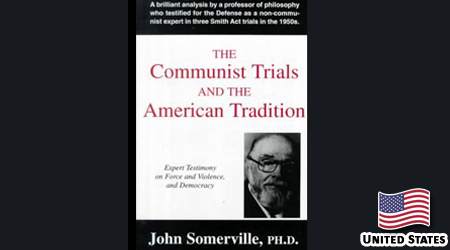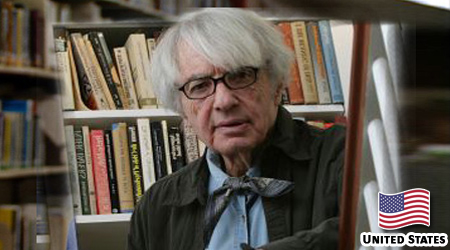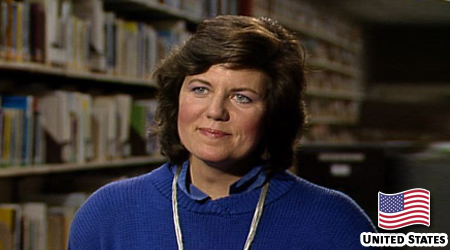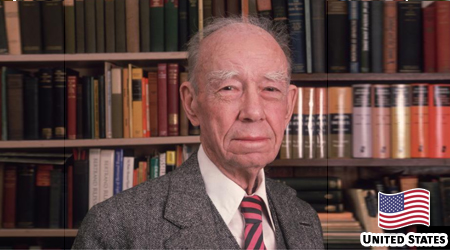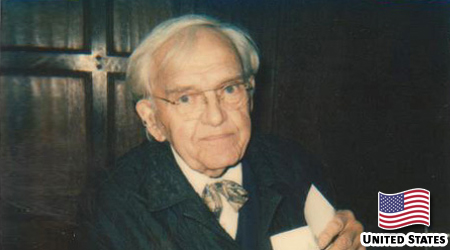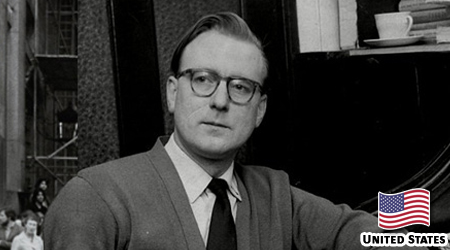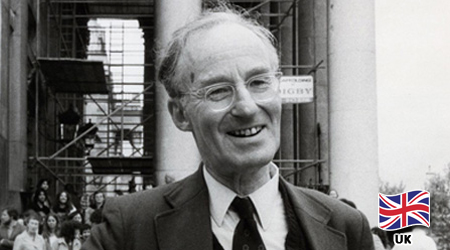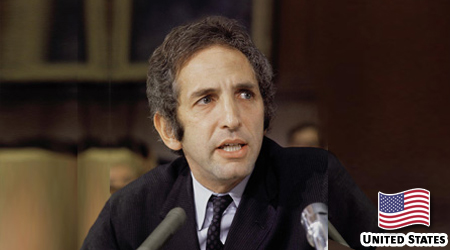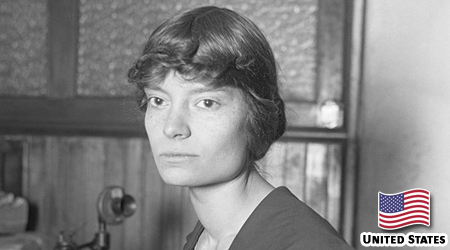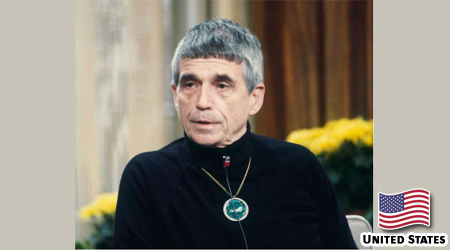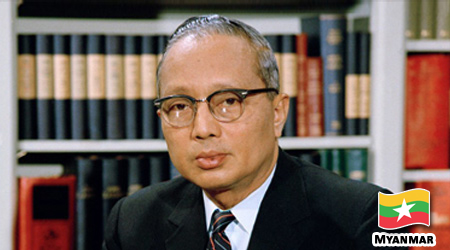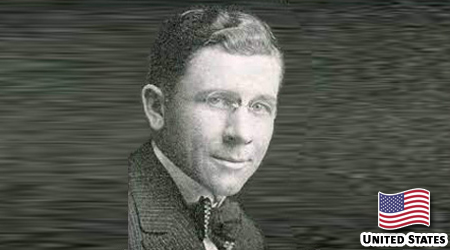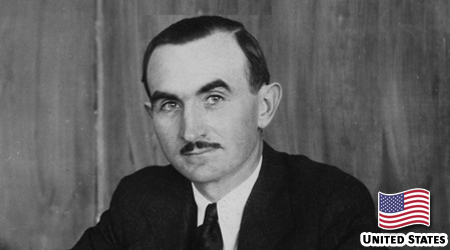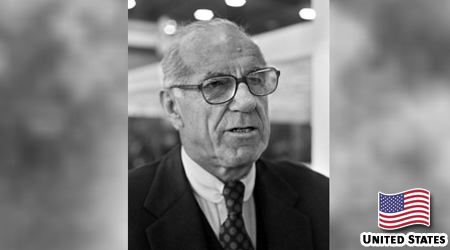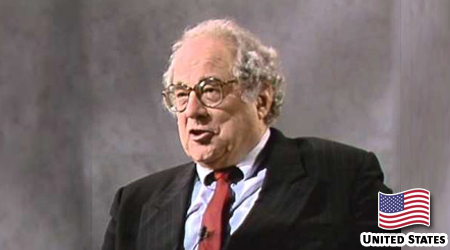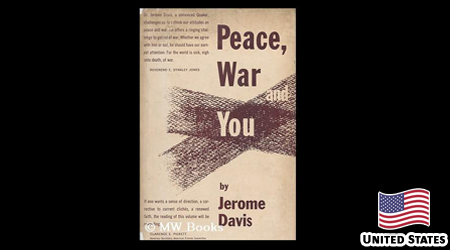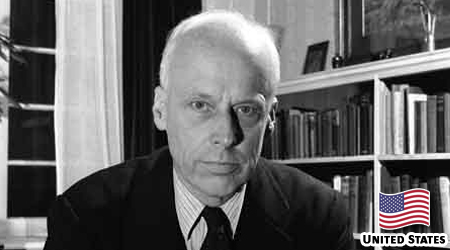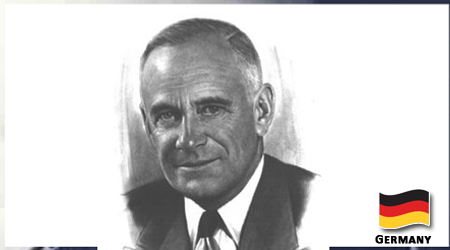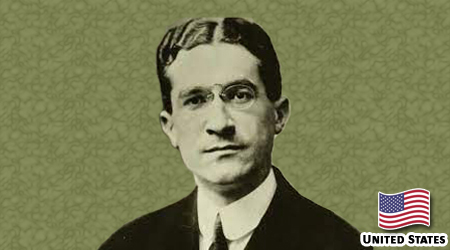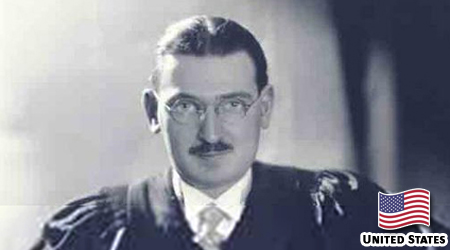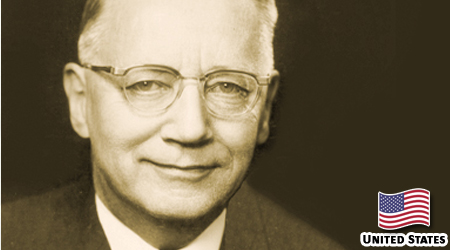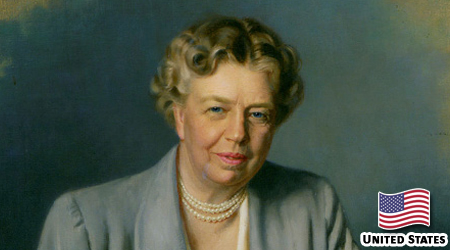Gandhi Peace Award
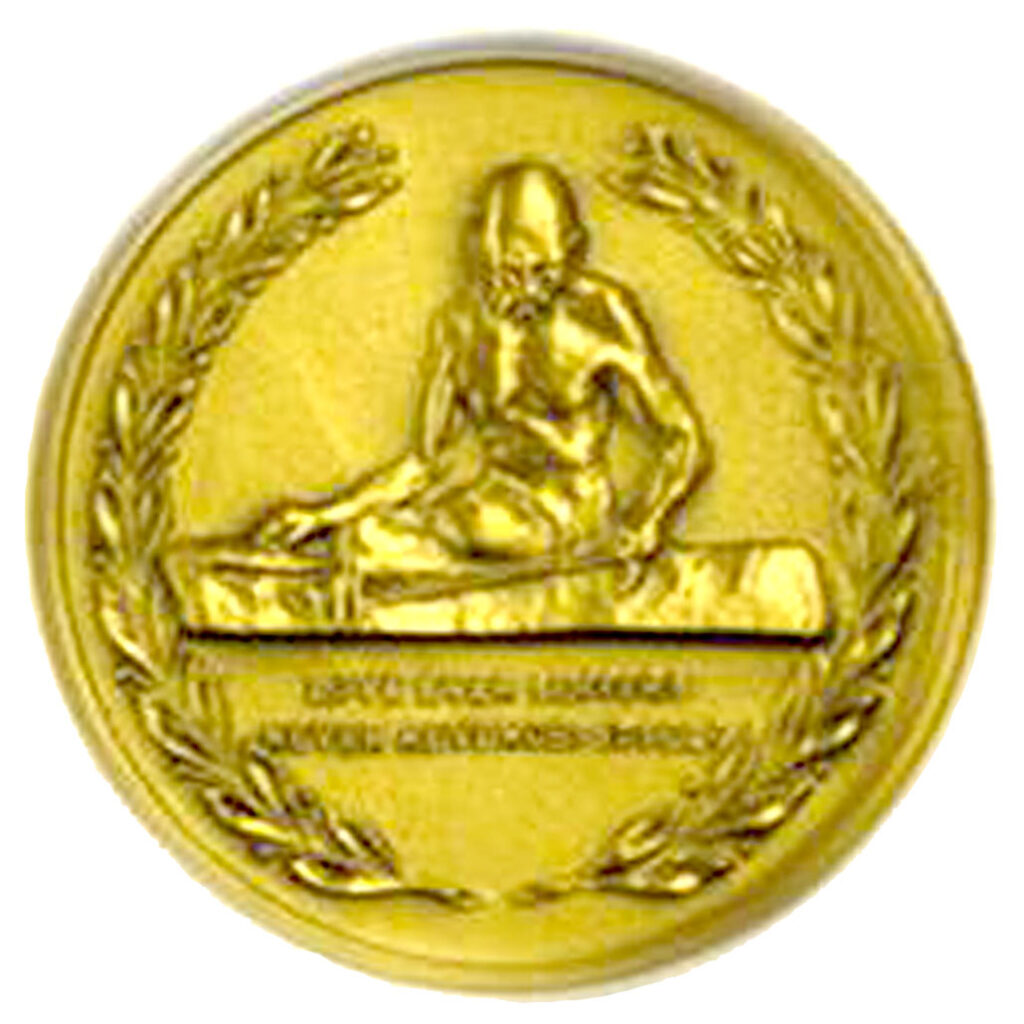
Gandhi Peace Award
The Gandhi Peace Award is an award and cash prize presented annually since 1960 by Promoting Enduring Peace to individuals for "contributions made in the promotion of international peace and good will." It is named in honor of ''Mohandas Karamchand Gandhi'' but has no personal connection to Mohandas Gandhi or any member of his family. In the 21st Century the Award is especially intended by its presenters to honor those whose lives and works exemplify the principle that international peace, universal socioeconomic justice, and planetary environmental harmony are interdependent and inseparable, and all three are essential to the survival of civilization.The Award itself is symbolized by a heavy medallion and a certificate with an inscription summing up the recipient's work. The medallion, forged from Peace Bronze (a metal rendered from decommissioned nuclear missile command systems, evoking "swords into plowshares"), features Gandhi's profile and his words "Love Ever Suffers/Never Revenges Itself" cast in bronze. The Award has been presented at a ceremony held typically once a year in New York or New Haven at which the recipient is invited to present a message of challenge and hope.
| Sl | Name | Country | Flag | Year | Awarded For |
|---|---|---|---|---|---|
| 58 | Kali Akuno | United States | 2023 | contribution made in promotion of international peace and goodwill. | |
| 57 | Zaher Sahloul | United States | 2020 | contribution made in promotion of international peace and goodwill. | |
| 56 | Mayson Almisri | United States | 2020 | contribution made in promotion of international peace and goodwill. | |
| 55 | Jackson Browne | United States | 2018 | contribution made in promotion of international peace and goodwill. | |
| 54 | Omar Barghouti | Palestine | 2017 | contribution made in promotion of international peace and goodwill. | |
| 53 | Ralph Nader | United States | 2017 | contribution made in promotion of international peace and goodwill. | |
| 52 | Kathy Kelly | United States | 2015 | contribution made in promotion of international peace and goodwill. | |
| 51 | Tom B.K. Goldtooth | United States | 2015 | contribution made in promotion of international peace and goodwill. | |
| 50 | Medea Benjamin | United States | 2014 | contribution made in promotion of international peace and goodwill. | |
| 49 | Bill McKibben | United States | 2013 | contribution made in promotion of international peace and goodwill. | |
| 48 | Amy Goodman | United States | 2012 | contribution made in promotion of international peace and goodwill. | |
| 47 | Arik Ascherman | Israel | 2011 | contribution made in promotion of international peace and goodwill. | |
| 46 | Ehud Bandel | United States | 2011 | contribution made in promotion of international peace and goodwill. | |
| 45 | David Cortright | United States | 2004 | contribution made in promotion of international peace and goodwill. | |
| 44 | Karen Jacob | United States | 2004 | contribution made in promotion of international peace and goodwill. | |
| 43 | Adrienne van Melle-Hermans | Netherland | 2003 | contribution made in promotion of international peace and goodwill. | |
| 42 | Dennis Kucinich | United States | 2003 | contribution made in promotion of international peace and goodwill. | |
| 41 | Michael True | United States | 2002 | contribution made in promotion of international peace and goodwill. | |
| 40 | Alice Frazier | United States | 1997 | contribution made in promotion of international peace and goodwill. | |
| 39 | Howard | United States | 1997 | contribution made in promotion of international peace and goodwill. | |
| 38 | Paula Kline | United States | 1996 | contribution made in promotion of international peace and goodwill. | |
| 37 | Alan Wright | United States | 1996 | contribution made in promotion of international peace and goodwill. | |
| 36 | Edith Ballantyne | Canada | 1995 | contribution made in promotion of international peace and goodwill. | |
| 35 | Roy Bourgeois | United States | 1994 | contribution made in promotion of international peace and goodwill. | |
| 34 | Lucius Walker | United States | 1993 | contribution made in promotion of international peace and goodwill. | |
| 33 | Ramsey Clark | United States | 1992 | contribution made in promotion of international peace and goodwill. | |
| 32 | George McGovern | United States | 1991 | contribution made in promotion of international peace and goodwill. | |
| 31 | Marian Wright Edelman | United States | 1990 | contribution made in promotion of international peace and goodwill. | |
| 30 | César Chávez | United States | 1989 | contribution made in promotion of international peace and goodwill. | |
| 29 | John Somerville | United States | 1987 | contribution made in promotion of international peace and goodwill. | |
| 28 | Bernard Lown | Lithuania | 1986 | contribution made in promotion of international peace and goodwill. | |
| 27 | Kay Camp | United States | 1984 | contribution made in promotion of international peace and goodwill. | |
| 26 | Robert Jay Lifton | United States | 1984 | contribution made in promotion of international peace and goodwill. | |
| 25 | Randall Watson Forsberg | United States | 1982 | contribution made in promotion of international peace and goodwill. | |
| 24 | Corliss Lamont | United States | 1981 | contribution made in promotion of international peace and goodwill. | |
| 23 | Helen Caldicott | Australia | 1980 | contribution made in promotion of international peace and goodwill. | |
| 22 | Roland Bainton | United States | 1979 | contribution made in promotion of international peace and goodwill. | |
| 21 | Martin Ennals | United States | 1964 | contribution made in promotion of international peace and goodwill. | |
| 20 | Peter Benenson | United Kingdom | 1978 | contribution made in promotion of international peace and goodwill. | |
| 19 | Daniel Ellsberg | United States | 1976 | contribution made in promotion of international peace and goodwill. | |
| 18 | Dorothy Day | United States | 1975 | contribution made in promotion of international peace and goodwill. | |
| 17 | Daniel Berrigan | United States | 1974 | contribution made in promotion of international peace and goodwill. | |
| 16 | U Thant | Burma | 1972 | contribution made in promotion of international peace and goodwill. | |
| 15 | Willard Uphaus | United States | 1970 | contribution made in promotion of international peace and goodwill. | |
| 14 | Wayne Morse | United States | 1970 | contribution made in promotion of international peace and goodwill. | |
| 13 | Benjamin Spock | United States | 1968 | contribution made in promotion of international peace and goodwill. | |
| 12 | William Sloane Coffin Jr. | United States | 1967 | contribution made in promotion of international peace and goodwill. | |
| 11 | Jerome Davis | United States | 1967 | contribution made in promotion of international peace and goodwill. | |
| 10 | Norman Thomas | United States | 1967 | contribution made in promotion of international peace and goodwill. | |
| 9 | A.J. Muste | Netherland | 1966 | contribution made in promotion of international peace and goodwill. | |
| 8 | Martin Luther King Jr. | United States | 1964 | contribution made in promotion of international peace and goodwill. | |
| 7 | E. Stanley Jones | United States | 1963 | contribution made in promotion of international peace and goodwill. | |
| 6 | James Paul Warburg | Germany | 1962 | contribution made in promotion of international peace and goodwill. | |
| 5 | Linus C. Pauling | United States | 1962 | contribution made in promotion of international peace and goodwill. | |
| 4 | John Haynes Holmes | United States | 1961 | contribution made in promotion of international peace and goodwill. | |
| 3 | Rabbi Maurice Eisendrath | United States | 1961 | contribution made in promotion of international peace and goodwill. | |
| 2 | Edwin T. Dahlberg | United States | 1960 | contribution made in promotion of international peace and goodwill. | |
| 1 | Eleanor Roosevelt | United States | 1960 | contribution made in promotion of international peace and goodwill. |

Gandhi Peace Award Laureates (2030 ~ 2021)
View More

Gandhi Peace Award Laureates (2020 ~ 2011)
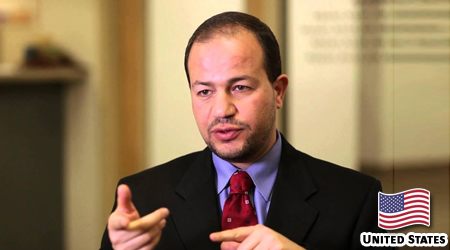
Zaher Sahloul
Gandhi Peace Award 2020
In 2020 Promoting Enduring Peace decided to give the award to two Syrians active in these organizations doing humanitarian work. The first is to Dr. Zaher Sahloul. He’s past president of the Syrian-American Medical Society which has built and rebuilt hospitals in Syria, in recent years underground or in caves. He’s now president of Medglobal which helps not just in Syria, but in 14 countries. He’s a pulmonary specialist in Chicago where he’s currently helping treat patients with the Covid-19 virus. Click here for an archive of print and TV appearances by Dr. Sahloul.
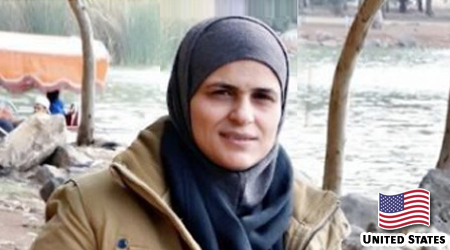
Mayson Almisri
Gandhi Peace Award 2020
Mayson Almisri is from Deraa where the mass demonstrations began in Syria in 2011. She is a leader in the Syrian Civil Defense, known in the West as the "White Helmets". They are the heroes who dig out survivors and bodies from under the rubble of Assad or Russian bombs. They have enraged the Assad regime by making videos of the devastation caused by the barrel bombs and the chemicals. Now during the recent ceasefire, they work at disinfecting, hoping to ward off the virus inside the remnant of Idlib province. Click here for more about Mayson Almisri.
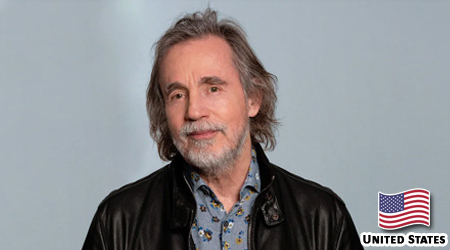
Jackson Browne
Gandhi Peace Award 2018
Jackson Browne in 2018 was honored for his extraordinary contributions of time and talent to the inseparable causes of peace, environmental harmony, and social justice on local and planetary scales.Browne has composed and performed songs widely regarded as among the most literate and moving in popular music, defining a genre of songwriting charged with honesty, emotion, and personal politics. He was inducted in 2004 into the Rock & Roll Hall of Fame and in 2007 into the Songwriters Hall of Fame. Rolling Stone magazine counts three of his albums among the greatest 500 albums of all time, and counts him among the 40 greatest songwriters of all time.Several of his albums, such as Lives in the Balance, World in Motion, Looking East, and Standing in the Breachdirectly challenge imperialist foreign policy, environmental short-sightedness, and corporate greed, questioning the sustainability of the present civilization.He has produced and performed in a thousand benefit performances to support the environment, social justice, and human rights as well as causes such as music and arts education in public schools.From the 1970s to the present he has motivated artists to stand with him against nuclear dangers, for solidarity with developing nations, and on behalf of the health of the seas. In December 2018 Browne released “The Dreamer”—a song that poignantly dramatizes the plight of those who have relied on the protection of the Deferred Action for Childhood Arrivals (DACA) .
View More
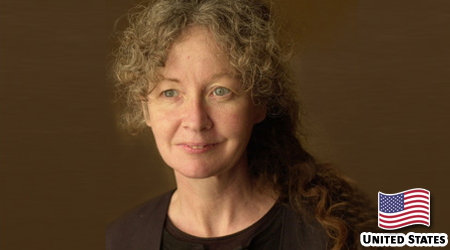
Kathy Kelly
Gandhi Peace Award 2015
Kathy Kelly is nationally known for her outspoken activism protesting the use of drones by the U.S. military. She co-coordinates Voices for Creative Nonviolence, a national campaign to end U.S. military and economic warfare. She has led protests in Gaza and is an international leader against the war in Iraq. She has served several prison sentences for her non-violent, militant activism against nuclear weapons and war. On April 21st Kelly was released from federal prison after serving a three month sentence for non-violently protesting drone warfare at Whiteman AFB which operates weaponized drones in Afghanistan.
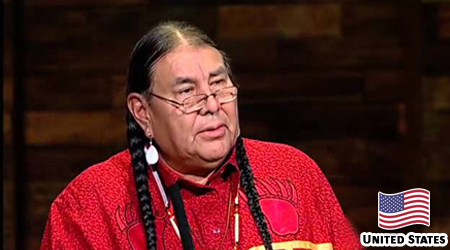
Tom B.K. Goldtooth
Gandhi Peace Award 2015
Tom B. K. Goldtooth, is Dine’ and Mdewakanton Dakota. He is the first Native American recipient to receive the Gandhi Peace Award. He is the national director of the Indigenouse Environmental Network at Bemidji, Minnesota, and has been a leader in Native social, economic, and environmental justice issues for over 35 years. He works with Indigenous Peoples and organizations around the world advocating for environmental and climate justice. He is co-producer of the award winning documentary film, “Drumbeat For Mother Earth,” which has received critical acclaim for its exposure of the effects of bio-accumulative chemicals on Indigenous communities. In 2010 he was honored by the Sierra Club and by the NAACP as a “Green Hero of Color.”
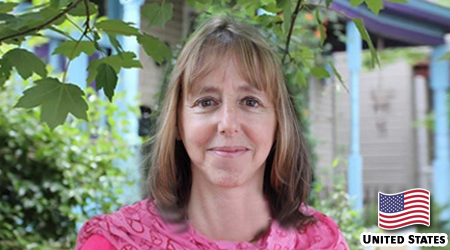
Medea Benjamin
Gandhi Peace Award 2014
Medea Benjamin is an American political activist, best known for co-founding Code Pink and, along with activist and author Kevin Danaher, the fair trade advocacy group Global Exchange. Benjamin was also the Green Party candidate in California in 2000 for the United States Senate.In 2005, she was one of 1000 women from around the world nominated collectively for the Nobel Peace Prize. Her work for peace and human rights has taken her to many parts of the world, including China, Afghanistan and Iraq. In 2000, she was the Green Party USA candidate for United States Senate from California.She is famed for speaking truth to power, for interrupting the speeches of the warmonger and defenders of tyrants.

Bill McKibben
Gandhi Peace Award 2013
Bill McKibben is an author, environmentalist, activist and the founder of the grassroots climate campaign 350.org, which has coordinated 15,000 rallies in 189 countries since 2009. He is a frequent contributor to various magazines including The New York Times, The Atlantic Monthly, Harper’s, Orion Magazine, Mother Jones, The New York Review of Books, Granta, Rolling Stone, and Outside. He is also a board member and contributor to Grist Magazine. He has been awarded Guggenheim and Lyndhurst Fellowships, and won the Lannan Prize for nonfiction writing in 2000. He is currently a Scholar in Residence at Middlebury College.Before receiving the GPA, 350.org completed a 20-city “Do the Math” tour to build grassroots support for combating climate change. McKibben and 350.org are also calling for universities, colleges, and governments to divest themselves of oil and coal company assets. In August of 2011 he made the Keystone XL pipeline a national issue by holding a two week protest that led to 1,253 arrests, which was the largest organized act of civil disobedience in decades. In February 2013 50,000 people showed up in Washington D.C. because of 350.org to protest the pipeline and to bring attention to climate change.
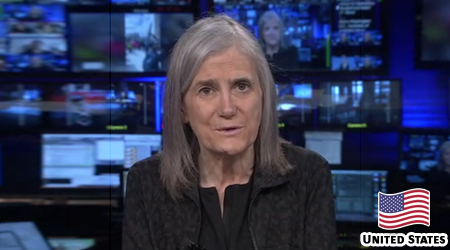
Amy Goodman
Gandhi Peace Award 2012
Amy Goodman is the host and executive producer of Democracy Now!, a national, daily, independent, award-winning news program airing on over 1,100 public television and radio stations worldwide. TimeMagazine named Democracy Now! its “Pick of the Podcasts,” along with NBC’s Meet the Press.Goodman is the first journalist to receive the Right Livelihood Award, widely known as the ‘Alternative Nobel Prize’ for “developing an innovative model of truly independent grassroots political journalism that brings to millions of people the alternative voices that are often excluded by the mainstream media.” She is the first co-recipient of the Park Center for Independent Media’s Izzy Award, named for the great muckraking journalist I.F. Stone. The Independent of London called Amy Goodman and Democracy Now! “an inspiration”;PULSE named her one of the 20 Top Global Media Figures of 2009.Goodman is the author of four New York Times bestsellers. Her latest book, Breaking the Sound Barrier, proves the power of independent journalism in the struggle for a better world. She co-authored the first three bestsellers with her brother, journalist David Goodman: Standing Up to the Madness: Ordinary Heroes in Extraordinary Times(2008), Static: Government Liars, Media Cheerleaders, and the People Who Fight Back (2006) and The Exception to the Rulers: Exposing Oily Politicians, War Profiteers, and the Media That Love Them (2004). She writes a weekly column (also produced as an audio podcast) syndicated by King Features, for which she was recognized in 2007 with the James Aronson Award for Social Justice Reporting.Goodman has received the American Women in Radio and Television Gracie Award; the Paley Center for Media’s She’s Made It Award; and the Puffin/Nation Prize for Creative Citizenship. Her reporting on East Timor and Nigeria has won numerous awards, including the George Polk Award, Robert F. Kennedy Prize for International Reporting, and the Alfred I. duPont-Columbia Award. She has also received awards from the Associated Press, United Press International, the Corporation for Public Broadcasting, and Project Censored. Goodman received the first ever Communication for Peace Award from the World Association for Christian Communication. She was also honored by the National Council of Teachers of English with the George Orwell Award for Distinguished Contribution to Honesty and Clarity in Public Language.

Arik Ascherman & Ehud Bandel
Gandhi Peace Award 2011
2011. Rabbis Arik Ascherman, General Secretary of Rabbis for Human Rights and Ehud Bandel, a co-founder of the organization are central figures in Rabbis for Human Rights, the only organization that brings forward the human rights voice in the Jewish tradition. Rabbis for Human Rights was founded in 1988 and more then 100 rabbis and rabbinical students from all of the denominations are members of the organization. Among other social issues, Rabbis for Human Rights deals with the Palestinian’s human rights in Israel and in the territories. Rabbis Ascherman and Bandel exemplify the struggle for nonviolent ways of resolving the persecution of Palestinians in Israel.

Gandhi Peace Award Laureates (2010 ~ 1991)

Karen Jacob & David Cortright
Gandhi Peace Award 2004
Karen Jacob & David Cortright were the first married couple to jointly receive the recognition. They met on the PEP Mississippi Peace Cruise in 1986, comprising equal numbers of US and Soviet citizens–part of PEP’s massive Citizen Diplomacy program. They were married three years later. “My ability to be an effective peacemaker depends on my partnership with Karen”, said Cortright at the Award Ceremony. Jacob said, “This award recognizes his lifelong work and passion and mine as well.” At the time Cortright was a visiting fellow at the Joan B. Kroc Institute for International Peace Studies at Notre Dame and president of the Fourth Freedom Forum headquartered in Goshen, Indiana. He has been active in anti-war movements and affiliated with organizations such as the Win Without War campaign to stop the war in Iraq and the Washington-based National Committee for a SANE Nuclear Policy, a nationwide anti-nuclear weapons activist organization.Cortright has written and been involved in the production of several books and has worked to expose shortcomings of U.S. missile defense programs. Jacob has been an activist since 1979 when as a young adult she was secretary to Howard Frazier, PEP’s former executive director, and participated in three citizen diplomacy tours to the Soviet Union as co-leader. She was president of PEP from 2002 to 2005 and during that time was also chapter president of Women’s Action for New Directions (WAND) of Northern Indiana, serving on its national board of directors. Jacob is a registered nurse and volunteers in medical programs for the poor. She is also a painter. “This is very strongly a part of our identity,” Cortright said. “This is where we share and draw strengths from each other. … (the) Iraq war is so obviously wrong and unjust that we couldn’t be true to ourselves if we didn’t speak out against it.” [Source: South Bend Tribune]

Dennis Kucinich
Gandhi Peace Award 2003
Dennis J. Kucinich (08 Oct. 1946 – )Since being elected to Congress in 1996, Kucinich has been a tireless advocate for worker rights, and civil rights. In Congress, Kucinich has authored and co-sponsored legislation to create a national health care system, preserve Social Security, lower the costs of prescription drugs, provide economic development through infrastructure improvements, abolish the death penalty, provide universal prekindergarten to all 3, 4, and 5 year olds, create a Department of Peace, regulate genetically engineered foods, repeal the USA PATRIOT Act, and provide tax relief to working class families.Kucinich has been honored by Public Citizen, the Sierra Club, Friends of the Earth and the League of Conservation Voters as a champion of clean air, clean water and an unspoiled earth. Kucinich has twice been an official United States delegate to the United Nations Convention on Climate Change (1998, 2004) and attend the 2002 World Summit on Sustainable Development in Johannesburg, South Africa.
Through his various governmental positions and campaigns, Kucinich has attracted attention for consistently delivering “the strongest liberal” perspective. This perspective has been shown by his actions, such as bringing articles of impeachment against President George W. Bush and Vice President Dick Cheney, and being the only Democratic candidate in the 2008 election to have voted against invading Iraq.
View More
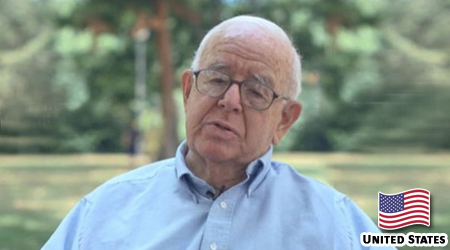
Michael True
Gandhi Peace Award 2002
Michael True has been a leader of the American peace education movement for two decades and is currently President of the International Peace Research Association Foundation. He was named Peace Educator of the Year in 1996 and received the Peace Studies Association Lifetime Achievement Award in 1999. In light of his call for a peaceful response to the September 11 attacks, peace education advocate Colman McCarthy named him among “the great pacifists: Mahatma Gandhi, Martin Luther King Jr., Dorothy Day, Jeanette Rankin, …Thomas Merton and Thich Nhat Hanh…” A native of Oklahoma now residing in Worcester, Massachusetts, and an active Quaker with a Catholic background, Dr. True and his wife, Mary Pat Delaney, were active in the Catholic opposition to the Vietnam War. He cofounded the Floating Parrish that established a pattern for interfaith cooperation in the struggle for peace and justice. He has taught at colleges in the U.S. and abroad including Duke, Columbia, and Nanjing University in China, and in 1997-98 was Fulbright Lecturer at universities in Jaipur and Bhubaneswar, India. He has spoken for peace on campuses and in communities throughout the U.S., Europe, and Asia, including Australia, New Zealand, and North Korea. His books include Daniel Berrigan: Poetry, Drama, Prose (1988), Ordinary People: Family Life and Global Values (1991), To Construct Peace: 30 More Justice Seekers, Peacemakers (1992), An Energy Field More Intense Than War: The Nonviolent Tradition and American Literature (1995), and Who Needs Religion (2000, co-author).

Howard Thomas Frazier & Alice Zeigler Frazier
Gandhi Peace Award 1997
Howard & Alice Frazier were married in 1974, the same year Howard was selected by PEP founder Jerome Davis to become Executive Director. During their 23-year tenure conducting people-to-people diplomacy through the Cold War, PEP matured into an organization capable of projects with worldwide import far beyond its staff and resources. With Martin Cherniack they produced the first significant national conference on the true nature of the C.I.A. They organized and led many friendship tours to the Soviet Union, China, Cuba, Japan, and Costa Rica, including a dozen joint Soviet-American peace cruises on the Volga, Dnieper, and Mississippi rivers; the Mississippi cruises garnered intensive national attention at the climax of the Cold War. They distributed hundreds of thousands of reprinted articles on peace and progressive topics, and maintained the high standards of the annual Gandhi Peace Award while bringing it “home” to New Haven. In 1988 Howard became the only American ever to receive the Fighter for Peace award from the Soviet Peace Committee.Howard and Alice jointly received the Citizen Democracy Award from the Center for American-Soviet Dialogue in 1990. They qualified PEP as an official N.G.O. of the United Nations and actively participated in U.N. activities; in 1994 Alice represented PEP at the international conference of women in China. ? Howard Thomas Frazier was born in 1911 in rural Tennessee. During the New Deal years he worked for the TVA. As a youth he met Norman Thomas (gpa ’67) and was a leader of the Y.M.C.A. He found a mentor in civil rights leader Myles Horton, founder of the Highlander Folk Center. In World War II he was a major in the Army Air Forces, serving in the Pacific. He then worked in the U.S. Labor Dept. promoting fair wage standards; in the early ’50’s he met César Chávez (gpa ’89) as Chavez was beginning his U.F.W. organizing efforts. In 1965, after the death of his first wife, Howard was appointed to the President’s Commission on Consumer Interests; in 1968 he joined the White House staff as Administrative Assistant for Consumer Protection. He became head of the Consumer Federation of America and then the Consumers Education and Protection Association. He also led a campaign to help poor families avoid the loss of their homes. ? He was a vital participant in many local and national peace organizations, including WILPF, Fellowship of Reconciliation, and A.F.S.C.; a founder of the Connecticut Coalition on Cuba; and was instrumental in bringing the Peace Boat project of Japan to New York. He was hailed by many as a true world citizen.Alice Zeigler Frazier, a Connecticut native, grew up in the Greater New Haven area and was a teacher and high school counselor in Connecticut, California, and Germany, traveling widely throughout Europe and the world until retiring and joining the work of PEP Her interest in the practice of yoga brought her into contact with Howard at a yoga spiritual retreat in Canada, just before he was to move to Connecticut to begin his tenure as Executive Director. Over the years since their meeting she has been responsible for the sparkling and informative PEP newsletters and other written materials, has been a strong advocate within PEP for the women’s perspective, and her co-equal leadership of PEP was recognized when she was appointed co-director with Howard.
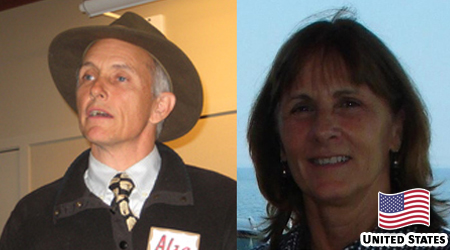
Alan Wright & Paula Kline
Gandhi Peace Award 1996
Alan Wright and Paula Kline, founders of The New Haven/León Sister City Project in 1984, were moved to support the Nicaraguan revolution for social justice and to challenge U.S. foreign policy. Since then hundreds of area citizens have joined in the Project’s delegations, cultural exchanges, humanitarian projects, and cooperative enter–prizes. The Project has been hailed as Connecticut’s most successful progressive effort, internationally recognized as a model of grass-roots support for sustainable development throughout the world.
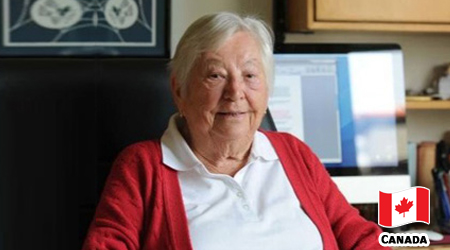
Edith Ballantyne
Gandhi Peace Award 1995
Edith Ballantyne is the second international president of the Women’s International League for Peace and Freedom (wilpf) to win the Award (the first was Kay Camp [gpa ’84].)“It was the wisdom of our founding foremothers in 1915 that peace is not rooted only in treaties between great powers or a turning away of weapons alone, but can only flourish when it is also planted in the soil of justice, freedom, non-violence, opportunity and equality for all. They understood, and WILPF still organizes in the understanding, that all the problems that lead countries to domestic and international violence are all connected and all need to be solved in order to achieve sustainable peace.”This remarkable vision still guides us today as we face the challenges of the twenty-first century. In today’s context this means· the equality of all people in a world free of sexism, racism, classism, and homophobia,· the guarantee of fundamental human rights including the right to sustainable development,· an end to all forms of violence: rape, battering, exploitation, intervention and war,· the transfer of world resources from military to human needs, leading to economic justice within and among nations, and· world disarmament and peaceful resolution of international conflicts via the United Nations. (WILF
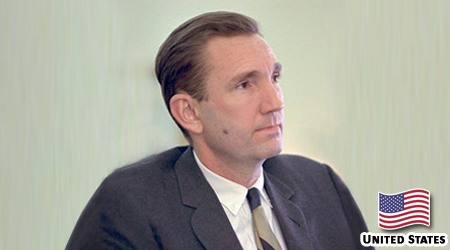
Ramsey Clark
Gandhi Peace Award 1992
Ramsey Clark was the Deputy Attorney General from 1965 until 1967, when President Johnson appointed him the 66th U.S. Attorney General. Clark served as the Attorney General until the end of the Johnson Administration in January 1969, and played an important role in the administration’s civil rights agenda, including supervising the drafting of the 1968 Civil Rights Act. He filed the first lawsuit to force a school district — Dale County, Ala. — to desegregate or else lose its federal school aid.He was Attorney General during the Vietnam War and its unclear if he was an opponent. In 1968 he began the prosecution of five antiwar activists, charging Yale chaplain William Sloane Coffin Jr., the famed pediatrician Dr. Benjamin Spock and three others of undermining the draft law. Coffin and Spock had won the Gandhi Peace Award respectively in 1967 and 1968.Following his term as Attorney General, Clark worked as a law professor and became actively anti-war. He traveled to Vietnam during in 1972, criticizing Nixon war policies. Two years earlier in 1970 he was asked to testify in the trial of the Chicago 7, activists who were charged with conspiracy to incite a riot. He agreed, but judge Julius Hoffman wanted to hear what he had to say first. Clark told Hoffman that he had told President Johnson that the Justice Department thought it was the police who had started the riot. Hoffman refused to let him testify. In the 2020 Netflix movie "The Trial of the Chicago 7" Clark was played by Michael Keaton.President Jimmy Carter turned to him to attempt to negotiate the release of the 53 American hostages held in Tehran in 1979.In 1991, Clark became a leader in the Coalition to Stop US Intervention in the Middle East opposed the US-led war and sanctions against Iraq. He accused the administration of President George H. W. Bush, Dan Quayle, James Baker, Dick Cheney, William Webster, Colin Powell, Norman Schwarzkopf of "crimes against peace, war crimes" and "crimes against humanity" for its conduct of the Gulf War against Iraq and the ensuing sanctions. He traveled to Iraq seven times and saw first-hand the horrors of the war and the sanctions which killed hundreds of thousands. Clark was dedicated to providing legal representation to the peace movement, particularly efforts to free Leonard Peltier.He received the Gandhi Peace Award in 1992.He spoke out against the 2003 military invasion of Iraq and was one of the lawyers for the captured Saddam Hussein. He defended this action saying it was important for Iraq and the world that Hussein be given a completely fair trial.He passed away April 9, 2021.

Gandhi Peace Award Laureates (1990 ~ 1981)
View More
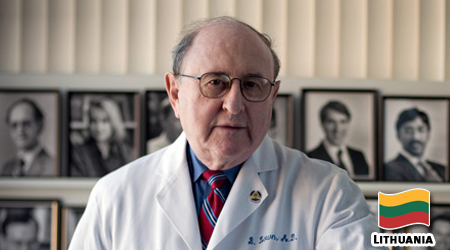
Bernard Lown
Gandhi Peace Award 1986
Dr. Bernard Lown was a renowned Harvard cardiologist who founded Physicians for Social Responsibility and co-founded International Physicians Against Nuclear War (I.P.P.N.W.). He was born in Lithuania in 1921, the son and grandson of rabbis. His grandfather, uncle, aunt, and cousins died at the hands of the Nazis; his father, a shoemaker, brought the family to the U.S. in 1935. He received his medical degree from Johns Hopkins in 1945. He did his residency at Yale, served as an Army doctor in the Korean War, and became a professor at the Harvard School of Public Health. There he authored over 300 articles and two books. While at Yale he co-founded the national Association of Interns and Medical Students and organized medical aid for victims of the Vietnam War. He invented a superior defibrillator, developed ways to reduce heart attacks, helped invent new anti-clotting medicines, and began research into the mind-body link. His “students have populated the cardiology departments of the leading teaching institutions of the United States.”In 1961 he became the first president of Physicians for Social Responsibility and conducted a special 1962 issue of the New England Journal of Medicine on the medical effects of nuclear war. In 1979 and 1980 he and other doctors from the U.S., the U.S.S.R., and Japan organized I.P.P.N.W. “dedicated to research, education, and advocacy relevant to the prevention of nuclear war.” It rapidly grew to 140,000 members in 41 countries.In 1985, after PEP chose him for the Award, he accepted the Nobel Peace Prize on behalf of I.P.P.N.W. I.P.P.N.W. endorsed a mutual nuclear weapons freeze, a no-first-use pledge, a ban on space-based weapons, and an immediate fifty percent reduction in strategic nuclear arsenals as ways to begin eliminating “the number-one public health threat of our time.” The Soviets acceded to all of these; the U.S. rejected them all. In 1986, he started SatelLife, a satellite-based health communications system. He co-founded the World Court Project to bring the legality of nuclear weapons before the World Court, and Abolition 2000, the goal of which is a world free of nuclear weapons by the end of the century. Dr. Lown operated the Lown Cardiovascular Group in Brookline, Massachusetts and the Lown Institute.Dr. Lown passed away in 1922.
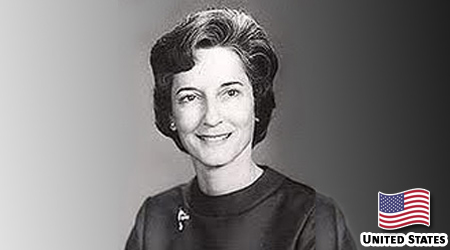
Kay Camp
Gandhi Peace Award 1984
Charles G. Dawes, in full Charles Gates Dawes, (born Aug. 27, 1865, Marietta, Ohio, U.S.—died April 23, 1951, Evanston, Ill.), 30th vice president of the United States (1925–29) in the Republican administration of President Calvin Coolidge. An ambassador and author of the “Dawes Plan” for managing Germany’s reparations payments after World War I, he was awarded the Nobel Prize for Peace jointly with Sir Austen Chamberlain in 1925.Dawes was the son of General Rufus R. Dawes, a Union officer during the American Civil War and later a member of Congress, and Mary Beman Gates. Educated at Marietta College in Ohio and Cincinnati Law School, Dawes practiced law in Lincoln, Nebraska (1887–94), and then moved to Evanston, Illinois, which he made his permanent home. He was appointed United States comptroller of the currency in 1897 but resigned to contest (unsuccessfully) the Republican Party nomination for a United States Senate seat in 1901. He then turned to private business and banking and organized the Central Trust Company of Illinois. During World War I, Dawes was head of supply procurement for the American Expeditionary Force in France. After his resignation as a brigadier general in 1919, he was appointed by President Warren G. Harding as the first director of the budget in 1921.In 1923 Dawes was appointed by the Allied Reparations Commission to plan a solution for the problem of Germany’s inability to pay reparations for its liability for World War I as set forth in the Treaty of Versailles. Dawes presided over a committee of experts that submitted a plan in 1924 providing for a reorganization of German finances with the assistance of loans from American investors. The Dawes Plan saved Europe from economic collapse for a few years, but it proved to be only a partial solution for the dilemma of world economic disorganization.After he was selected as Coolidge’s vice-presidential running mate in 1924, he campaigned against the Ku Klux Klan and supported limits on the use of the filibuster in the Senate. As vice president he favoured the Kellogg-Briand Pact, which attempted to eliminate war as an instrument of foreign policy. He declined to seek the presidency in 1928 and was appointed ambassador to Great Britain (1929–32) by Herbert Hoover. During the Great Depression he returned to the United States (1932) to direct the Reconstruction Finance Corporation but resigned the same year to reenter the banking business.Dawes was the author of several works, including A Journal of the Great War (1921), Notes as Vice President (1935), and A Journal of Reparations (1939). A self-taught musician, he composed Melody in A Major (1912), an instrumental piece for violin that, with the addition of lyrics by Carl Sigman, became the pop standard “It’s All in the Game” (1951).
credit@www.britannica.com

Gandhi Peace Award Laureates (1980 ~ 1971)
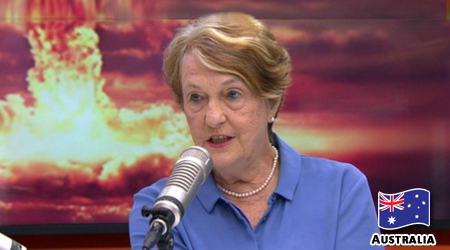
Helen Caldicott
Gandhi Peace Award 1980
Dr. Helen Caldicott (Aug 7,1938 -)was a physician on the staff of Boston’s Children’s Hospital and president of Physicians for Social Responsibility (P.S.R.) when she received the Award. Australian-born and educated, she organized opposition to French nuclear testing in the South Pacific. She believed that the threat of nuclear war was so great and so close that she gave up the practice of medicine at Harvard for two years to devote all of her energies to alerting the public to the dangers of nuclear war.She was in constant demand as a speaker on three continents. She appealed to especially women to transcend the lethal power systems men have created: “It’s women who have the babies, and an instinct to protect them; women can start to turn this madness around.” In 1976 the Caldicotts emigrated to the United States permanently. In 1978 she revived P.S.R. Amidst the Three Mile Island crisis and its aftermath, P.S.R. membership grew to 45,000 (including over 20,000 doctors), a paid staff of 30, and a budget well over a million dollars. She helped start the Medical Campaign Against Nuclear War (in England) and the Women’s Party for Survival.She helped found similar groups in northern Europe, did a speaking tour in her home country, and was a featured speaker at the 35th observance in Hiroshima of the first atomic massacre. A documentary film of her life and work, “Eight Minutes to Midnight”, nearly won the 1981 Academy Award; another documentary featuring her work, “If you Love This Planet”, did win the following year. In December 1982 she became the only peace activist ever to meet with President Reagan—a meeting of over one hour. She founded International Physicians to Save the Environment, garnered a tremendous ovation at the 1994 U.N. Earth Summit, and continues to inspire peace activism.She received the Gandhi Peace Award in 1980.
View More

Gandhi Peace Award Laureates (1970 ~ 1971)
View More
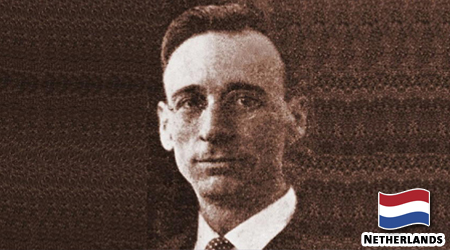
A.J. Muste
Gandhi Peace Award 1966
Ernesto Teodoro Moneta, (born Sept. 20, 1833, Milan, Austrian Empire [now in Italy]—died Feb. 10, 1918, Milan, Italy), Italian journalist and international activist on behalf of peace (except where Italian interests required war). He won (with Louis Renault) the Nobel Prize for Peace in 1907.At the age of 15 Moneta participated in the Milanese insurrection of 1848 against Austrian rule, and in 1859–60 he fought under Giuseppe Garibaldi in the victorious war of liberation. In 1861 he joined the regular Italian army and fought in the Battle of Custoza in 1866. After resigning from the army, he became editor (1867–96) of Il Secolo, a democratic newspaper published in Milan.The suffering that Moneta witnessed during his military career prompted him to seek ways to abolish war, and about 1887 he founded the Società Internazionale per la Pace: Unione Lombarda (“International Society for Peace: Lombard League”) to propagandize for disarmament, a league of nations, and settlement of international disputes by arbitration. In 1898 he founded a pacifist periodical, Vita internazionale (“International Life”). In 1906 his presidency at the International Peace Conference in Milan led to his sharing the Nobel Prize for Peace. Nevertheless, in 1911 he supported Italy’s war against Turkey on the grounds of an Italian civilizing mission in Libya, and in 1915 he advocated Italian entry into World War I to combat the imperialist designs of the Central Powers.“My final goal as a politician is to establish an association for peace made up of Europe’s states, a league, where the dangers that come of borders are abolished, and which chases the demon envy out the door; a brotherhood that will not allow patriotism to develop into a narrow-minded nationalism, that will not allow evil and hate to blow every small misunderstanding up into a cause for war. I see true internationalism in the efforts to achieve such a goal. And I believe we are moving towards this.” (Ernesto Moneta in the newspaper Verdens Gang, 25.8.1908.)
